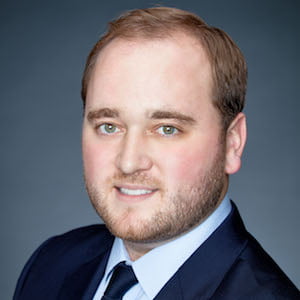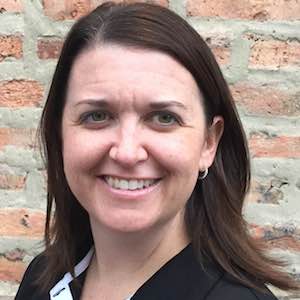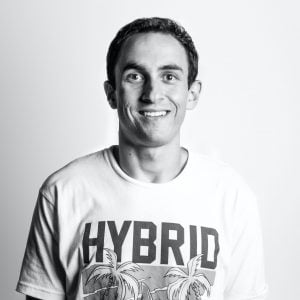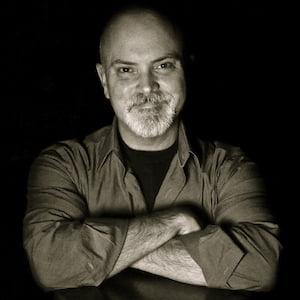I've snuck into a lot of physical therapy continuing education courses that I don't belong in over the last few years. I've enjoyed putting myself in situations where I'm the least knowledgable person in the room, and trying to learn in a field peripheral to strength & conditioning has elevated my thinking as a coach in ways that I would not have anticipated.
I first met Ben at a DNS (Dynamic Neuromuscular Stabilization) course that he was hosting and assisting with – although I don't think he remembers me from that.
This was my first exposure to a lot of concepts that are a big part of how I train and coach people today like:
*Understanding proper breathing and core stabilization
*Understanding the value of joint centration and alignment for proper motor control
*Visually assessing not just range of motion in joints but understanding "how" the body and brain are creating motion
I remember feeling helpless and confused in this course as instructors and fellow students would watch someone laying on a table and make quick assessments of their motor control and stabilization strategies.
I was like, "Are these people actually seeing something? Or are they just making it up?"
I can imagine parallels here in terms of watching someone do a snatch at full speed. After a certain number of reference experiences, a coach can immediately see someone rushing their first pull or not getting their knees out of the way as they lift the bar. However, to an untrained observer, every rep probably looks the same. "They're just snatching. Not sure what you're seeing."
Now, not to say that my observational skills are anywhere near that of a trained clinician, but, after taking several more DNS courses, GRIP Approach courses, and getting plenty of reference experiences coaching people and trying to get clients to move better, I think I can sometimes see some of the issues and compensation patterns that were totally indistinguishable to me a few years back when I first met Ben.
Ben has created his own continuing education courses called GRIP Approach (Global Rehabilitation and Injury Prevention), and he is also a practicing chiropractor in Evanston at Cornerstone Clinics.
Through GRIP Approach, Ben takes some of the most effective – yet esoteric – concepts in physical therapy and rehab and makes them practical and accessible to healthcare practitioners, coaches, and trainers.
Ben has a huge wealth of knowledge on all things related to developmental kinesiology, soft tissue and fascial restriction and dysfunction, and the nervous system's role in controlling ranges of motion and compensatory patterns.
Fortunately, rather than just hoarding all of this information for himself, he's synthesizing what he knows and teaching it through GRIP Approach in a way that's one of the most actionable frameworks that I've seen for this type of knowledge.
Take a listen below to hear Ben discuss how he approaches assessment of clients, how he individualizes treatments for different people and different goals, where he personally goes to keep learning, and how he continues developing his craft.
Ben will also be teaching a course at South Loop Strength & Conditioning in July of 2016, so take a look below for more information on Ben's courses as well as his personal practice in Evanston.
Listen Here
- iTunes
- Overcast
- Google Play
- mp3
- Or stream here:
Learn More About Dr. Ben Fergus and GRIP Approach
- Website: GRIP Approach & Cornerstone Health
- Facebook: GRIPapproach
- Twitter: @GripApproach
Resources Mentioned
- DNS – The Prague School of Rehabilitation
- The Gait Guys
- Ben will be at SLSC on July 16th & 17th teaching his GRIP Performance 1 course. Registration link is available here.
Show Notes
- [0:21] Dr. Ben Fergus Introduction
- [2:26] How did you get into this field?
- [4:35] An example of an athlete or patient that pushed you to break the standard model.
- [7:02] Why is one person effected by an issue when another is not with similar patterning issues?
- [10:55] What is your thought on people who are performing at a high level doing stuff "wrong"?
- [13:27] Can you elaborate on how you assess people that come into your office? What do you look for?
- [21:38] Why do people lose the ability to control these neutral zones of reference?
- [24:54] Fear avoidance…
- [28:25] How do you filter through what people really need?
- [32:35] Mobility… Stability… What is happening in situations where you have different issues.
- [37:18] PT exercises, joint manipulations… studies show that they work, why?
- [40:41] What are so special about the DNS positions?
- [46:07] How does the brain select specific ranges of motion and how do we change our ability to do that?
- [49:58] How did training in Prague come about?
- [54:17] How do you decide what to read, what courses to take?
- [1:01] If you could do any study, what would be a massive win?
- [1:04] GRIP Performance course



